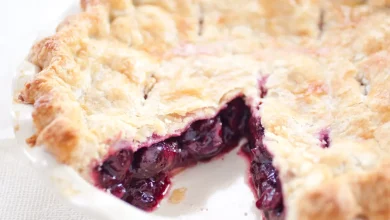Agua, often simply referred to as water, is a clear, odorless, tasteless liquid that is essential for all known forms of life on Earth. It plays a crucial role in various biological processes and is a fundamental part of our everyday lives. Here’s the information you requested:
What is it?
Water, or “agua” in Spanish, is a chemical substance composed of two hydrogen atoms bonded to one oxygen atom, with the chemical formula H2O. It exists in three primary states: solid (ice), liquid (water), and gas (water vapor). It’s the most abundant compound on Earth’s surface and is vital for all living organisms.
History:
The history of water is intertwined with the history of life itself. Water has been present on Earth for billions of years and is believed to have played a role in the formation of our planet. Throughout history, humans have recognized the importance of water for survival, leading to the development of various water management and transportation systems. Ancient civilizations, such as the Egyptians and Romans, built sophisticated aqueducts and water supply systems.
Components:
Water is a simple chemical compound consisting of two elements: hydrogen (H) and oxygen (O). Its molecular structure, H2O, means that each water molecule is made up of two hydrogen atoms bonded to one oxygen atom.
Steps to Prepare It:
Preparing water, in the sense of making it safe for consumption, usually involves ensuring it’s free from contaminants. Here are the steps to prepare safe drinking water:
-
Source Selection: Choose a clean and reliable water source, such as a tap, well, or bottled water.
-
Filtration: If the water source is questionable, use a water filter to remove impurities and particles.
-
Disinfection: To kill harmful microorganisms, you can disinfect water through methods like boiling, using water purification tablets, or using a UV water purifier.
-
Storage: Store the treated water in clean containers to prevent recontamination.
Time Needed to Prepare It:
The time needed to prepare water depends on the method used for disinfection. Boiling water, for instance, typically takes around 1-3 minutes of vigorous boiling to make it safe to drink. Using water purification tablets or a UV purifier can take a matter of minutes as well. However, this may vary depending on the volume of water and the specific equipment used.
Remember that in many developed countries, tap water is treated at water treatment facilities and is safe to drink without additional preparation.
If you have any more specific questions about water or need information on a related topic, please feel free to ask.
Certainly, here are the nutrition facts and health information for plain water, often referred to as “agua”:
Nutrition Facts for 8-ounce (240 ml) serving of plain water:
- Calories: 0
- Total Fat: 0 grams
- Saturated Fat: 0 grams
- Trans Fat: 0 grams
- Cholesterol: 0 milligrams
- Sodium: 0 milligrams
- Total Carbohydrates: 0 grams
- Dietary Fiber: 0 grams
- Sugars: 0 grams
- Protein: 0 grams
- Vitamin D: 0% of the Daily Value (DV)
- Calcium: 0% DV
- Iron: 0% DV
- Potassium: 0% DV
Health Information:
-
Hydration: Water is essential for maintaining proper bodily functions. Staying adequately hydrated is crucial for overall health. It helps regulate body temperature, aids digestion, and supports the transport of nutrients and oxygen throughout the body.
-
Weight Management: Drinking water before meals can help with weight management by promoting a feeling of fullness, potentially reducing calorie intake.
-
Detoxification: Water plays a role in flushing toxins and waste products out of the body through urine and sweat.
-
Cognitive Function: Dehydration can lead to impaired cognitive function, affecting concentration and alertness. Staying hydrated is important for mental clarity.
-
Skin Health: Proper hydration is linked to healthy, glowing skin. It helps maintain skin elasticity and can reduce the risk of dryness and premature aging.
-
Exercise Performance: Staying hydrated is essential for athletes and those engaging in physical activity. Dehydration can lead to reduced exercise performance and muscle cramps.
-
Kidney Function: Adequate water intake supports kidney function, helping to filter waste products and maintain electrolyte balance in the body.
-
Digestion: Water is necessary for the digestion and absorption of food. It helps break down nutrients and supports smooth digestion.
-
Joint Health: Proper hydration can reduce the risk of joint pain and stiffness as water supports the lubrication of joints.
-
Heart Health: Staying hydrated is associated with a reduced risk of heart-related issues, as it helps maintain blood volume and supports healthy blood circulation.
It’s important to note that while water is crucial for health, the specific nutritional content is minimal because it contains no calories, fats, proteins, or significant vitamins and minerals. However, its role in maintaining overall health and well-being cannot be overstated. Drinking an adequate amount of water daily is essential for a healthy lifestyle.




